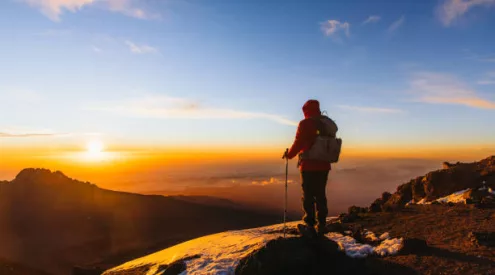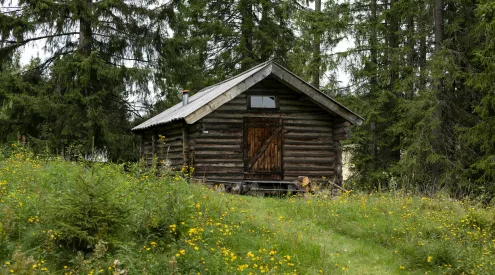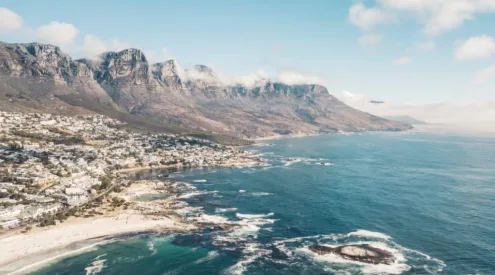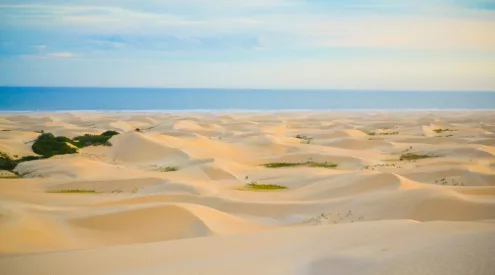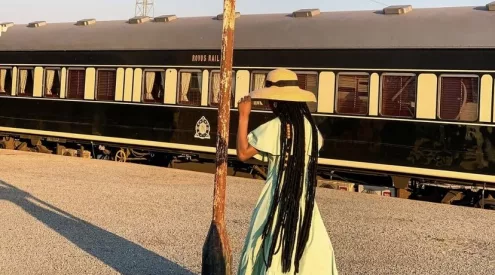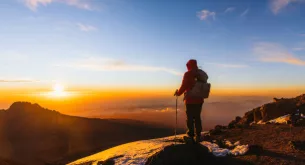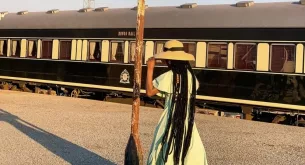The booming Indian Ocean wakes me up and the smell of salt water is everywhere. Through the Fountain Shack’s small window, I can make out the Southern Cross, a diamond pendant floating above the horizon.
It’s snug inside the small wooden hut, as the first rays illuminate a strandloper’s paradise: rocky shores, steep cliffs, beach coves and rock pools filled with marine wonders. Seagulls, terns and oystercatchers fly sorties in the dawn sky. The fynbos on the slopes behind me is a cacophony of sunbirds and sugarbirds. There are no other homes or humans anywhere in my view. Those strandlopers knew how to live, I reckon.
Four kilometres long and just a few hundred metres wide, Robberg Peninsula is almost surrounded by the Indian Ocean.

Image by Scott Ramsay
There are no roads in the reserve, a haven that represents the best of a bygone era. (On the mainland is Plettenberg Bay, these days a holiday town overwhelmed by malls.)
A circular walk gives elevated views down into the marine protected area that extends around the peninsula. Look out for humpback, southern right and Bryde’s whales, dolphins and the odd great white. There’s a seal colony on the northern side of the peninsula.
Also read: The not-so-posh guide to Plettenberg Bay

Image by Scott Ramsay
Do it
Leave your car at the reserve entrance and walk for about an hour along a rocky coastal path (carrying your food, clothing and sleeping bags). With space for only eight people, the humble hut (with outside loo and rain tanks for water) is the only place to stay at Robberg, so you’ll have the reserve to yourself in the early mornings and at night. From R920 for four people, and R320 per person extra. There is a conservation fee of R40 per person, R20 children. 0214830190, capenature.co.za

Image by Scott Ramsay

